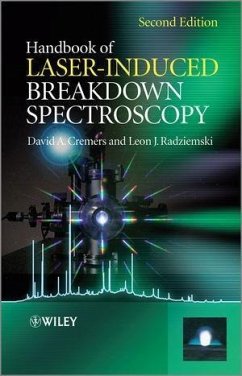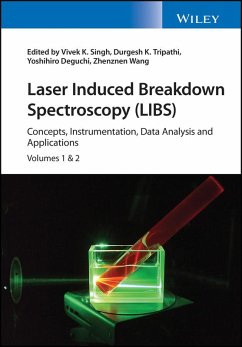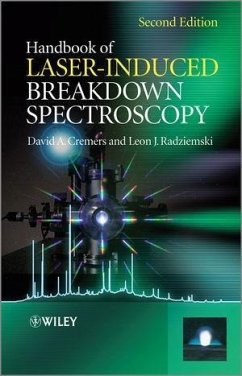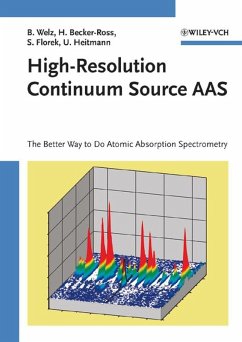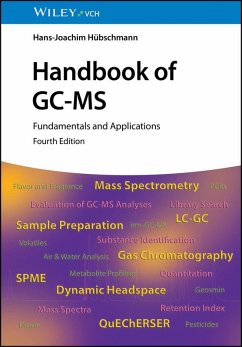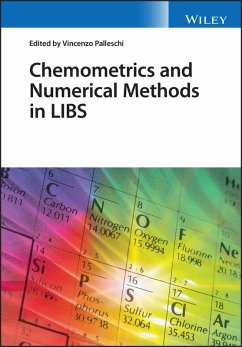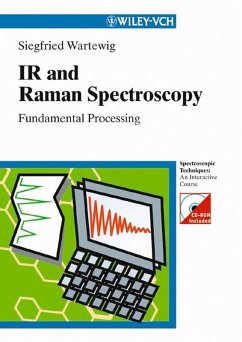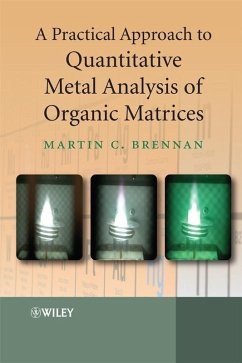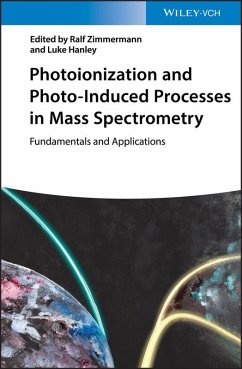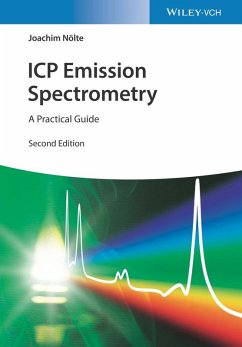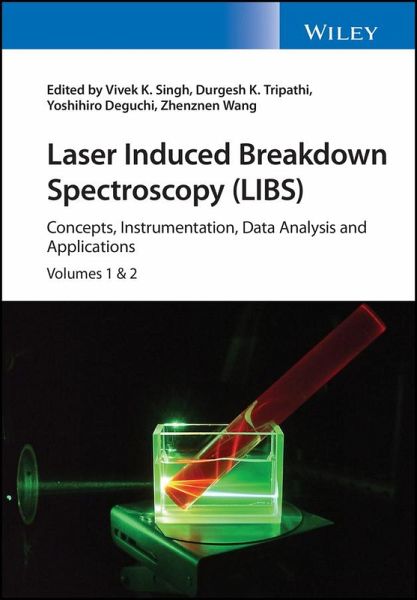
Laser Induced Breakdown Spectroscopy (LIBS) (eBook, PDF)
Concepts, Instrumentation, Data Analysis and Applications, 2 Volume Set
Redaktion: Singh, Vivek K.; Wang, Zhenzhen; Deguchi, Yoshihiro; Tripathi, Durgesh K.
Versandkostenfrei!
Sofort per Download lieferbar
330,99 €
inkl. MwSt.
Weitere Ausgaben:

PAYBACK Punkte
0 °P sammeln!
Laser Induced Breakdown Spectroscopy (LIBS) Essential resource covering the field of LIBS, with respect to its fundamentals, established and novel applications, and future prospects Laser Induced Breakdown Spectroscopy (LIBS), presents in two comprehensive volumes a thorough discussion of the basic principles of the method, including important recently available data which can lead to a better characterization of the LIBS plasma. This extensive work contains detailed discussions on the lasers, spectrometers, and detectors that can be used for LIBS apparatuses and describes various instrumentat...
Laser Induced Breakdown Spectroscopy (LIBS) Essential resource covering the field of LIBS, with respect to its fundamentals, established and novel applications, and future prospects Laser Induced Breakdown Spectroscopy (LIBS), presents in two comprehensive volumes a thorough discussion of the basic principles of the method, including important recently available data which can lead to a better characterization of the LIBS plasma. This extensive work contains detailed discussions on the lasers, spectrometers, and detectors that can be used for LIBS apparatuses and describes various instrumentation, ranging from basic setups to more advanced configurations. As a modern resource, the work includes the newest advances and capabilities of LIBS instruments, featuring the recent developments of Dual-Pulse LIBS, Femtosecond LIBS, and Micro-LIBS as well as their applications. Throughout, the contributions discuss the analytical capabilities of the method in terms of detection limits, accuracy, and precision of measurements for a variety of samples. Lastly, an extensive range of applications is presented, including food technology, environmental science, nuclear reactors, nanoscience and nanotechnology, and biological and biomedical developments. Sample topics covered within the work include: * iagnostics of laser induced plasma (LIP): LIBS plasma and its characteristics, factors affecting the LIBS plasma, methods of enhancing LIBS sensitivity, and LTE/non-LTE plasmas * Instrumental developments in LIBS: light collection system and spectral detection systems, handheld LIBS, deep sea LIBS, and industrial sorters and analyzers * Femtosecond laser ablation: laser-matter interaction, laser absorption, energy transport, ablation mechanisms and threshold, and plasma characterization * Micro-analysis and LIBS imaging: microjoule laser sources, scaling libs to microjoule energies, micrometer scaling, advanced applications, and future prospects Spectroscopic and analytical scientists working with LIBS will find this wide-ranging reference immensely helpful in developing LIBS instrumentation and applications. Researchers and students in natural sciences and related programs of study will be able to use the work to acquire foundational knowledge on the method and learn about cutting-edge advancements being made in the field.
Dieser Download kann aus rechtlichen Gründen nur mit Rechnungsadresse in A, B, BG, CY, CZ, D, DK, EW, E, FIN, F, GR, HR, H, IRL, I, LT, L, LR, M, NL, PL, P, R, S, SLO, SK ausgeliefert werden.




